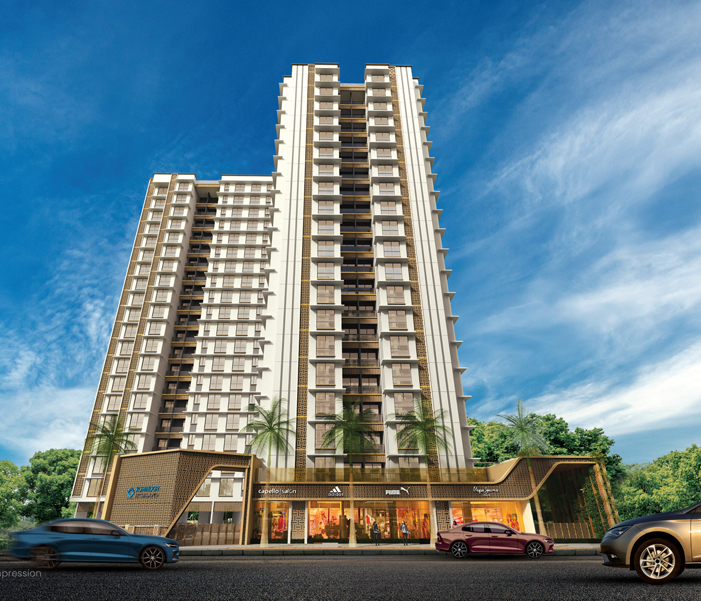
New Committee to Study Amendments to Maharashtra Apartment Ownership Act
Pune: Last week, the state government appointed a new 10-member committee to review amendments to the Maharashtra Apartment Ownership Act, 1970. This follows a previous 15-member panel that submitted its recommendations in October last year. The formation of this new committee, just eight months after the last one, has sparked concerns among housing sector activists.
The prior committee, established by the state, had already proposed changes, prompting questions about the necessity of a new review so soon. Activists are particularly curious about the reasons behind this decision and what new insights the smaller committee might bring to the table.
Key Features
The Ordinance adds that once redevelopment plans have been approved, all apartment owners must vacate their apartments.
Refusal to vacate the apartment will result in eviction upon the request of the association of apartment owners.
During the redevelopment process, the developer or association of apartment owners must provide for alternate temporary accommodation or rent.
Key Issues and Analysis
The Ordinance requires consent from a majority of owners to redevelop a building. Other jurisdictions have a higher threshold for requiring redevelopment.
If a building has been declared unsafe, the need to obtain consent of apartment owners for redevelopment is unclear.
The definition of apartment includes shops and other commercial establishments. Temporary eviction for redevelopment may cause financial losses to business.
PART A: HIGHLIGHTS OF THE ORDINANCE
Context
Regulation of land use and construction of buildings falls under the Twelfth Schedule of the Constitution, enabling states to empower urban local bodies to handle these matters through legislation. Typically, state town and country planning laws or apartment ownership laws govern these issues. Town and country planning laws oversee land use and development, while apartment ownership laws focus on the rights of individual and collective ownership within multi-unit buildings, whether for residential or commercial purposes. Additionally, state cooperative societies laws regulate apartment ownership when structured as cooperatives. Construction project approvals occur primarily at the local and state levels under development control laws, with regulations enforced through building bye-laws.
In recent years, states like Gujarat and Tamil Nadu have updated their apartment ownership laws to facilitate the redevelopment of aging and unsafe apartment buildings, which is crucial for improving housing quality and adopting better construction practices. Redevelopment projects often benefit from incentives like additional floor space index (FSI) provided by local authorities, enhancing the viability and attractiveness of such initiatives. Public housing and slum redevelopment projects also fall under this scope, with local planning authorities stepping in to redevelop unsafe housing units.
The Maharashtra Apartment Ownership Act, 1970, governs apartment ownership in the state, excluding co-operative housing societies. The Maharashtra Apartment Ownership (Amendment) Ordinance, 2023, introduced on October 23, 2023, modifies the 1970 Act to mandate the eviction of apartment owners in buildings approved for redevelopment.
Key Features
1. Mandatory Vacating for Redevelopment: The Ordinance stipulates that once a redevelopment proposal gains approval from the Town Planning Authority, all apartment owners must vacate their units, a process previously initiated with the majority consent of owners.
2. Provision of Alternative Accommodation or Rent: The responsible Association of Apartment Owners or developer must offer temporary alternative housing or rent to displaced residents.
3. Eviction for Non-compliance: Should an apartment owner refuse to vacate, the Association can request the Town Planning Authority to enforce eviction. An eviction notice will be posted prominently on the property, and police assistance may be utilized to ensure compliance.
PART B: KEY ISSUES AND ANALYSIS
Eviction of Property Owners for Redevelopment
The 1970 Act was amended in 2018 to allow building redevelopment with the majority consent of apartment owners, reducing the requirement from unanimous consent. Redevelopment is permissible for buildings over 30 years old or declared unsafe by the Planning Authority. The 2023 Ordinance requires mandatory vacating following redevelopment approval, providing alternate accommodation or rent to displaced owners. If owners resist, they face eviction upon the Association’s request, raising several concerns.
Appropriate Consent Threshold for Redevelopment and Eviction
Redevelopment impacts all apartment owners within a project. Requiring unanimous consent allows a single owner to block redevelopment. To balance interests, jurisdictions often mandate supermajority consent. The Ordinance sets a simple majority threshold. Comparatively, Gujarat requires 75% consent, Tamil Nadu requires two-thirds, and Singapore’s Land Titles (Strata) Act mandates 90% consent for buildings under 10 years and 80% for older buildings.
Necessity of Consent for Unsafe Buildings
If a building is unsafe, requiring owner consent for redevelopment and eviction seems redundant. Tamil Nadu’s laws bypass the need for consent if the building is declared unsafe. Maharashtra's Development Control Regulations mandate repair or demolition of unsafe buildings, treating them as public safety hazards. Tamil Nadu’s 2022 Act similarly waives consent requirements for unsafe buildings.
Impact on Commercial Establishments
Mixed-use buildings, combining residential and commercial spaces, present unique challenges. The Ordinance offers temporary accommodation or rent for vacated units, which may suffice for residences but not for commercial enterprises. Businesses forced to relocate temporarily could suffer financial losses, a factor the Ordinance does not fully address.


.jpg)
Recent comments(0)